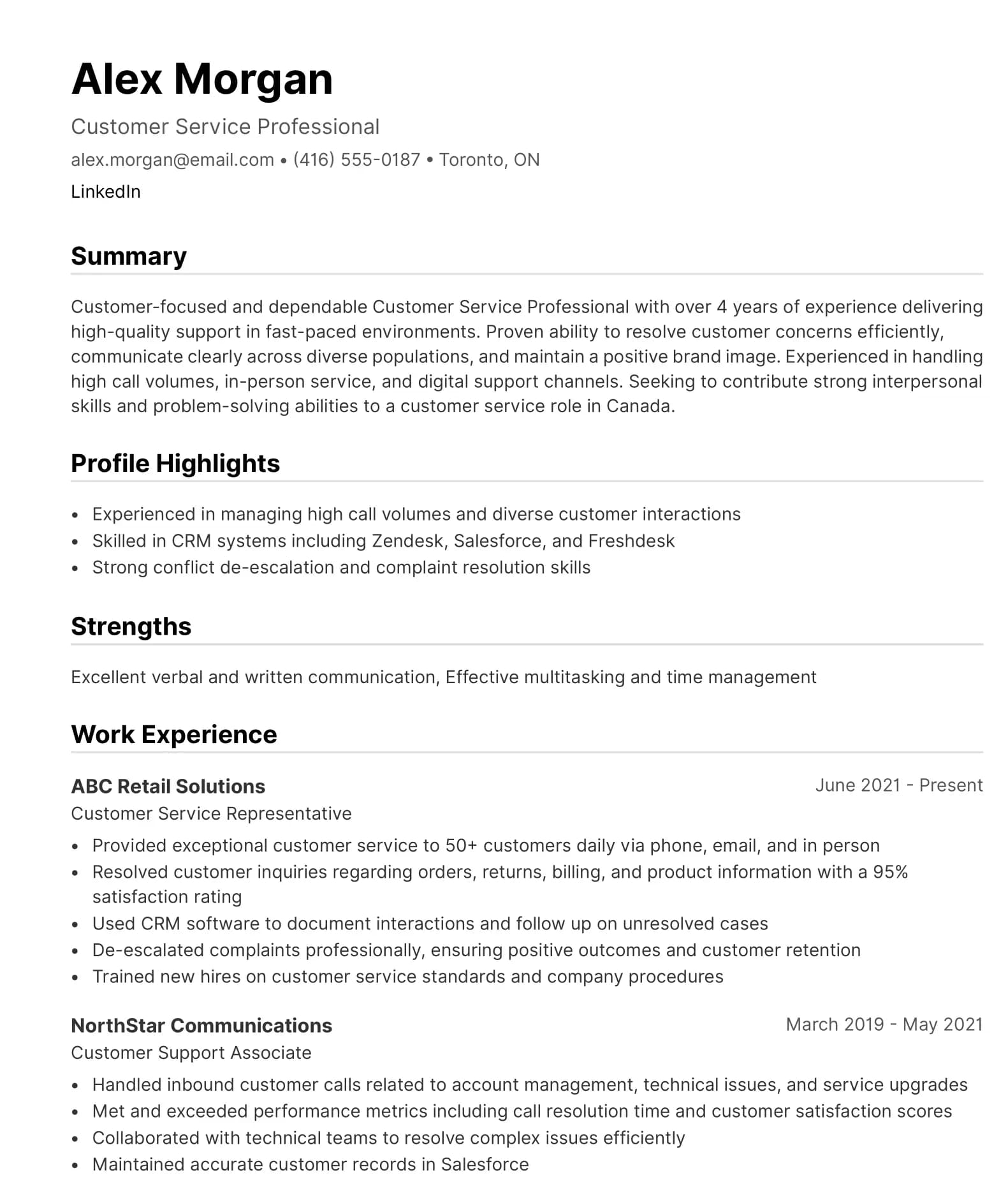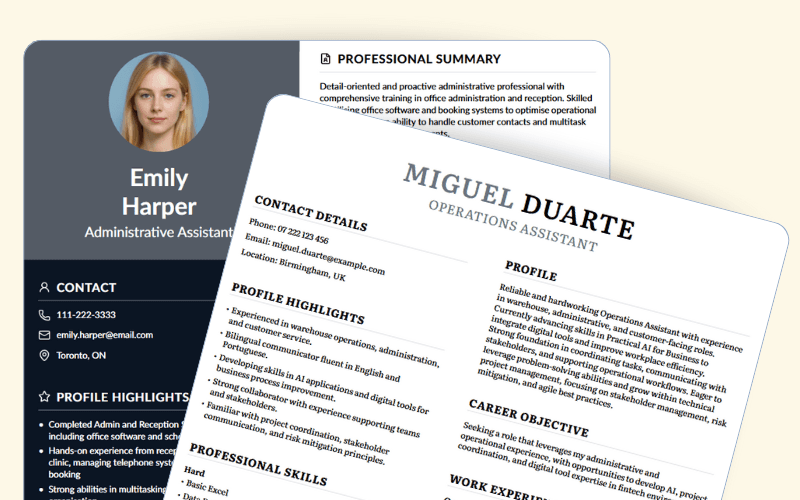You're halfway through a job application when you encounter sections marked "optional"—a cover letter field, an "additional information" box, voluntary demographic questions, or supplemental essay prompts. Your instinct might be to skip them and save time. After all, if they're optional, they don't matter, right?
Key Insight
On job applications, optional sections rarely mean irrelevant. They signal initiative, context, and fit. Completing the right ones can improve review priority, while skipping low value fields saves time. Strategic choices matter more than filling every box for job seekers.
Wrong. "Optional" in job applications rarely means "irrelevant." In most cases, it means "highly encouraged but not required to proceed." Understanding which optional sections to complete and which to skip can directly impact whether your application advances to the interview stage.
This guide examines the most common optional sections on job applications, explains what recruiters actually want from each one, and provides clear recommendations on when to complete them and when it's safe to skip.
The Real Meaning of "Optional" in Job Applications
When employers mark sections as optional, they're creating flexibility in their application process while still giving motivated candidates opportunities to strengthen their submissions. Here's what "optional" typically signals:
- Testing Initiative: Companies use optional sections to identify candidates who go beyond minimum requirements. In competitive hiring markets, completing optional sections demonstrates genuine interest in the specific role rather than mass-applying with minimal effort.
- Reducing Application Friction: Making certain sections optional prevents losing qualified candidates who might abandon lengthy applications. Companies would rather review incomplete applications from strong candidates than receive no application at all.
- Identifying Red Flags Without Asking Directly: Optional sections allow candidates to proactively address potential concerns—employment gaps, career changes, relocation needs—without employers needing to ask invasive screening questions.
25% of job seekers always include optional materials even when not required, and research shows they often stand out positively to recruiters. Understanding which optional sections warrant your time is key.
Optional Cover Letters: Always Include Them (With Rare Exceptions)
What It Is: Many applications mark cover letters as "optional" rather than required.
Should You Complete It? Yes, almost always.
Recent data shows that 26% of recruiters consider cover letters important when evaluating applications, and in the UK, 56% of hiring managers believe cover letters significantly impact hiring decisions. More importantly, only 26% of recruiters will "deduct points" from candidates who skip optional cover letters—but that means 74% either don't penalize you or actively prefer seeing one.
When Cover Letters Make the Biggest Impact:
- Competitive Roles: When multiple qualified candidates apply, a strong cover letter differentiates you from others with similar resumes
- Career Changes: If you're transitioning industries or roles, cover letters explain how your experience translates to the new position
- Employment Gaps: Cover letters let you address time away from work proactively and positively
- Remote Applications: When applying from different cities or states, cover letters explain relocation plans or remote work preferences
- Referrals: If someone referred you to the position, the cover letter is where you mention that connection
How to Approach Optional Cover Letters:
Write 3–4 concise paragraphs (300–400 words total) that explain why you're interested in this specific role at this specific company, highlight 2–3 key qualifications that align with requirements, and demonstrate knowledge of the company's work, mission, or recent developments.
Customize each cover letter to the specific job—generic templates are worse than no cover letter at all. Address the hiring manager by name whenever possible (check the job posting, company website, or LinkedIn for contact names).
When You Can Skip Cover Letters:
- The application explicitly states "do not include a cover letter"
- The application system has no way to upload or submit a cover letter
- You genuinely don't have time to write a thoughtful, customized letter (no cover letter is better than a rushed, generic one)
- You're applying to high-volume, entry-level positions where applications are processed primarily by automated systems
What It Is: Open text boxes asking for "any additional information you'd like to share" or "additional comments relevant to your application."
Should You Complete It? Yes, if you have relevant information that strengthens your application but doesn't fit elsewhere.
These sections serve specific strategic purposes. Use them when you need to:
Explain Unusual Circumstances:
- You're relocating to the area for personal reasons (not requiring company-paid relocation)
- Your educational credentials require clarification (international degrees, incomplete programs, etc.)
- You have scheduling constraints for interviews or start dates
Address Resume Questions:
- Career gaps you want to explain briefly
- Freelance or contract work that's hard to format traditionally
- Career changes that might seem disconnected without context
Highlight Transferable Skills: If you're changing careers, this section lets you connect previous experience to new role requirements without rewriting your entire resume.
What Not to Include:
Don't repeat information already on your resume or in your cover letter. Don't write generic statements about being "hardworking" or "passionate"—provide specific information that decision-makers need to know. Don't submit novel-length explanations—keep this section to 3–5 sentences maximum.
When to Skip:
If you don't have specific, relevant information to add beyond what's already in your resume and cover letter, it's perfectly acceptable to leave this section blank. No one will disqualify you for not filling an "additional information" box when you genuinely have nothing additional to share.
Voluntary Demographic Questions (Race, Ethnicity, Gender, Disability Status)
What It Is: Survey questions at the end of applications asking you to provide demographic information for Equal Employment Opportunity (EEO) reporting.
Should You Complete It? This is entirely your choice, and your decision has zero impact on your application.
These questions exist for legal compliance and internal diversity tracking. Federal contractors and large employers must track demographic data of their applicant pools and new hires to demonstrate compliance with equal opportunity laws.
Important Facts:
- Your answers are completely separated from your application materials and not visible to hiring managers
- You cannot be penalized for declining to answer
- Answering truthfully cannot legally be used to discriminate against you
- "Prefer not to answer" is always an option
Most applicants skip these questions entirely or select "prefer not to answer" and face no consequences whatsoever. Complete them only if you feel comfortable doing so.
Salary Expectations or "Desired Salary" Fields
What It Is: Optional fields asking what salary you're seeking.
Should You Complete It? Use caution—this question has strategic implications.
Providing salary expectations too early can work against you in negotiations. If you list a number below what they budgeted, you've anchored the negotiation lower than necessary. If you list a number above their budget, you might be filtered out before getting a chance to demonstrate your value.
Strategic Approaches:
- Option 1 - Skip It: Many applications allow you to leave salary fields blank or enter "0" or "negotiable." Unless it's a required field, consider leaving it empty.
- Option 2 - Provide a Range: If you must provide something, give a market-researched range rather than a specific number. Example: "Based on market research for this role in [city], I'm targeting $75,000–$90,000 depending on full compensation package."
- Option 3 - Redirect to Total Compensation: Write something like "Salary is one component of total compensation. I'm interested in discussing the full package including benefits, growth opportunities, and role scope."
When You Should Complete It:
- The field is marked required and won't let you submit without a number
- You have a firm minimum salary requirement and want to filter out positions below that threshold
- The job posting already disclosed a salary range, allowing you to position yourself within it
- You're in a strong negotiating position (highly specialized role, in-demand skills, competing offers)
Some jurisdictions now require employers to disclose salary ranges in job postings. In Ontario, as of 2026, employers must include salary bands in job postings, reducing the need for candidates to provide expectations upfront.
"Why Do You Want to Work Here?" or Supplemental Essay Questions
What It Is: Optional short-answer questions asking about your interest in the company, how you heard about the role, or scenario-based questions.
Should You Complete It? Yes, if you want your application to be competitive.
While technically optional, these questions serve as strong signals of candidate quality. Applicants who take time to answer thoughtfully stand out significantly from those who skip them.
Examples of Common Supplemental Questions:
- "What interests you about this role?"
- "How did you hear about this position?"
- "Describe a time when you faced a challenge similar to what this role requires"
- "What do you know about our company?"
How to Answer Effectively:
Keep responses concise (2–4 sentences per question). Demonstrate specific knowledge about the company or role—mention recent projects, company values, or specific aspects of the job description. Connect your background directly to what the question asks.
Bad example: "I want to work here because your company has a great reputation."
Good example: "I'm drawn to this role because of your focus on sustainable manufacturing practices. Having implemented waste reduction initiatives that cut costs by 18% in my current position, I'm excited to contribute to a company where environmental responsibility is central to the business model."
When You Can Skip:
If the questions are genuinely optional and you're applying to dozens of similar positions where customization isn't practical, focus your energy on the roles you're most interested in. Better to submit strong answers to 5 carefully selected applications than weak answers to 20.
Portfolio Links, Personal Website, or LinkedIn Profile
- What It Is: Optional fields to provide links to your professional online presence.
- Should You Complete It? Yes, but only if your online presence is current and professional.
- Research shows that 77% of recruiters use LinkedIn for candidate research, yet less than 50% of resumes include LinkedIn profile links. Providing professional links demonstrates transparency and gives recruiters additional context about your work.
When to Include Links:
- LinkedIn Profile: Include if your profile is complete, current, and consistent with your resume. Ensure your profile photo is professional, your headline is current, and your experience section matches your resume.
- Portfolio or Personal Website: Essential for designers, writers, developers, photographers, and other creative or technical roles where work samples matter. Include links that directly showcase relevant work.
- GitHub or Technical Profiles: For software developers, data scientists, or technical roles, linking to active GitHub repositories or Stack Overflow profiles demonstrates ongoing engagement with your field.
When to Skip Links:
- Your LinkedIn profile is outdated or inconsistent with your application
- Your personal website contains unprofessional content or irrelevant personal information
- You don't have professional work samples to share in online portfolios
- Your social media presence could raise concerns (keep personal accounts private)
References: "Available Upon Request" vs. Providing Them
- What It Is: Some applications include optional sections to list professional references.
- Should You Complete It? Generally skip at application stage unless specifically requested. Most employers don't contact references until late in the hiring process, typically after initial interviews when you've advanced to final candidate status. Providing references too early can be premature.
- Standard Approach: If your resume includes a references section, the line "References available upon request" is sufficient. When applications have optional reference fields, you can usually leave them blank during initial submission.
When to Provide References Upfront:
- The application marks references as required, not optional
- You're applying for positions requiring security clearances or background checks
- The job posting specifically asks for references with initial application
- You have references who work at the target company and agreed to advocate for you
Uploading Multiple File Types (Resume, Cover Letter, Transcripts, Certifications)
What It Is: Application systems that allow uploading various document types, marking some as optional.
Should You Complete It? Depends on the specific document type.
Always Upload:
- Resume (obviously)
- Cover letter (when permitted, even if optional)
- Specific documents the job posting mentions (certifications, licenses, portfolios)
Upload When Relevant:
- Transcripts: For recent graduates or when GPA is specifically mentioned in requirements
- Certifications: If they're relevant to the role and current (skip expired certifications)
- Writing samples: When the role involves writing and you have strong, relevant examples
Generally Skip:
- Academic transcripts if you've been out of school 5+ years
- Recommendation letters unless specifically requested
- Certifications unrelated to the target role
- Generic references to "other documents that might be helpful"
Strategic Application Completion: The 80/20 Rule
Not all optional sections deserve equal time. Focus your effort where it creates the most impact:
High-Impact Optional Sections (Complete These):
- Cover letters for competitive or preferred roles
- Supplemental questions about interest or fit
- LinkedIn and portfolio links (if current and professional)
- "Additional information" when you have relevant context to provide
Medium-Impact Optional Sections (Complete Selectively):
- Cover letters for high-volume applications
- "How did you hear about us" questions
- Salary expectation fields
- Reference lists
Low-Impact Optional Sections (Usually Skip):
- Demographic questions
- Non-required document uploads
- Generic "tell us more" fields when you have nothing specific to add
The Completion Mindset: Quality Over Quantity
Filling out optional sections shouldn't be viewed as a checkbox exercise. Each optional field represents an opportunity to differentiate yourself—but only if you provide thoughtful, specific content.
Better Approach: Apply to fewer positions with thoroughly completed applications rather than maximizing application volume with minimal effort. Research shows that strategic, customized applications achieve response rates of 25–40%, while volume-based approaches achieve only 2–3% response rates.
If you're seriously interested in a role, treat "optional" as "encouraged." If you're applying casually or as a backup option, focus your detailed effort on your top-choice applications.
Two Questions That Would Be Optional on a Job Application
Optional questions are designed to give candidates space to share relevant details without forcing everyone to respond.
Examples of optional questions include:
- “Please provide any additional information relevant to your application.”
- “Do you have any scheduling or availability constraints we should know about?”
- “Would you like to share your salary expectations for this role?”
- “How did you hear about this position?”
These questions are optional because not every candidate has relevant information to add. Employers use them to reduce application friction while still allowing candidates to clarify context when needed.
What Happens When You Skip Optional Sections
You will not be automatically rejected. Application systems allow submission without optional fields, and skipping them does not disqualify you.
You may be reviewed later. In competitive roles, applications with more complete information are often reviewed first.
You may miss a chance to stand out. Optional sections can be the only place to explain context, motivation, or differences from similar candidates.
You save time. Skipping optional fields speeds up applications, which can make sense for lower-priority roles but not for positions you truly want.
Different application platforms handle optional sections differently:
- Company Career Portals (Workday, SuccessFactors, iCIMS): These enterprise systems clearly mark required vs. optional fields. Optional typically means genuinely optional—the system will let you submit without completing them.
- LinkedIn Easy Apply: Most fields are optional beyond basic contact information. Complete your LinkedIn profile thoroughly rather than trying to fill supplemental fields during application.
- Indeed Applications: Cover letters are typically optional. For competitive roles, include one. For high-volume applications, focus on resume quality.
- Direct Email Applications: When emailing resumes directly, always include a cover letter in your email body—there are no "optional" sections when applying via email.
Final Recommendations: What to Actually Do
Here's the practical framework for handling optional sections:
For Your Dream Jobs (Top 20% of Applications):
- Complete all optional sections thoughtfully
- Write customized cover letters
- Answer supplemental questions with specific, researched responses
- Provide relevant links to professional profiles
- Use "additional information" to address anything that strengthens your candidacy
For Good-Fit Positions (Middle 60% of Applications):
- Include cover letters when the system makes it easy
- Complete high-impact optional sections (supplemental questions about interest/fit)
- Skip low-impact sections (demographic questions, general "tell us more" prompts without specific questions)
For Backup/Practice Applications (Bottom 20%):
- Focus on a strong resume and skip most optional sections
- Complete only required fields to submit quickly
- Save your detailed effort for better-fit opportunities
Making Optional Sections Work for You
Optional sections are best used strategically. They help you stand out only when you add relevant, thoughtful information rather than generic filler.
Knowing which optional sections matter and which you can skip helps you focus your time on applications most likely to lead to interviews. Rushed or generic applications rarely perform well in competitive hiring.
Use tools and templates that support clear formatting, strong content, and ATS compatibility so your resume and optional responses work together as a complete application.
ATS-Optimized resumes That Meet Employer Standards
Our AI-powered scoring system helps organizations assess and standardize resume quality at scale. ATS-compliant templates support consistent formatting, keyword alignment, and interview readiness across cohorts.








